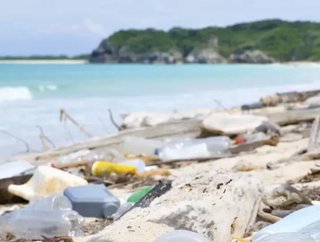The Responsible Plastic Use Coalition: Plastic isn't Toxic

On May 12, the Canadian government added all "plastic manufactured items" to Schedule 1, the List of Toxic Substances of the Canadian Environmental Protection Act (CEPA). In response, a new plastics coalition has been launched in Canada. The Responsible Plastic Use Coalition (RPUC) is a group of plastic industry leaders and large manufacturers like NOVA Chemicals looking to pursue legal action against the federal government. The coalition has now filed a Notice of Application in the Federal Court of Canada challenging the order.
The group says the Order presents barriers to achieving a circular economy in Canada and will result in negative environmental outcomes, increased consumer costs, and severe market uncertainty.
“This decision is not supported by available science and will have far-reaching and unintended consequences, including those beyond our borders.” says the press release.
To help combat plastic waste, the group continues to urge the federal government to implement science-based innovative solutions, such as enhancing collection infrastructure and investing in advanced recycling, releasing the following statements.
"As one of the largest food packaging companies in Canada, we are extremely concerned about the government's efforts to declare all plastic manufactured items as toxic. Our products are designed to keep food and water safe and fresh. Canadians rely on products like ours to sustain everyday life. Designating these products as toxic is not based on science and will have significant impacts on businesses large and small across the country, including Atlantic Canada. Implying that plastic is not safe for food or our water supply is not only dangerous but completely misleading."- Stephen Emmerson, President and CEO, Emmerson Packaging.
"Plastic materials have great virtue and continue to demonstrate just how essential they are to society. Canadians deserve a responsible and effective response to the problem of waste in Canada. That response must be based on fundamental science and built upon the decades of plastic research and use. Labelling plastic as toxic is not the solution to a sustainable, circular economy that ends plastic waste. There are far more beneficial solutions to divert waste from our natural environment, and we stand ready to work with the government and all stakeholders to build a comprehensive circular economy for plastics in Canada." - Luis Sierra, President and CEO, NOVA Chemicals.
"Our company employs over 300 hard-working Canadians. With this policy, the government is carelessly attaching a toxic label to our business - ignoring the fact that our films are the most environmentally friendly products available to safely transport goods across the country. We need policy based in science, not politics."- Ricardo Cardoso, COO, Malpack Ltd.
The press release further states, plastic is not toxic. Declaring plastic manufactured items "toxic" is a significant overreach by the federal government and will have unnecessary and unintended consequences, including:
- Increasing cost and confusion for consumers and small businesses;
- Reducing investment and innovation along the plastics value chain due to uncertainty and changing regulations;
- Creating regulatory uncertainty around which additional items could eventually be banned;
- Resulting in negative environmental outcomes by promoting alternatives to plastics which have greater environmental footprints;
- Making it more difficult to create a circular economy for plastic (a system aimed at eliminating waste and the continual use of resources); and,
- Preventing new and innovative recycling pathways for plastic.
It is simply wrong to list all plastic manufactured items as toxic. The federal government's approach does not recognise that most plastic manufactured items are considered to be safe and comply with national and international standards, and in the case of plastics used for food packaging, are required to comply with federal government regulations ensuring that they are safe for use. The challenge we face is not that plastic is toxic, but rather the challenge of post-consumer plastic in the environment resulting from human behaviour and systemic waste management and recycling shortfalls.
Government Response
Environment Canada has said the government is working to improve recycling standards while also tackling the amount of plastic being produced.
“We recognise that the plastics that can be easily recycled play an important role in our everyday lives and economy, as do many responsible industry leaders who are also taking action to address this issue,” said minister of environment and climate change Jonathan Wilkinson in a statement.
“When only 9 per cent of plastics are recycled, we have a serious problem that requires serious leadership.” He further stated the move to label plastics as toxic is based on facts and part of the government’s actions to ban single-use plastic in the country.
The courts will undertake a cross-examination of affidavits from both sides on the issue by August






